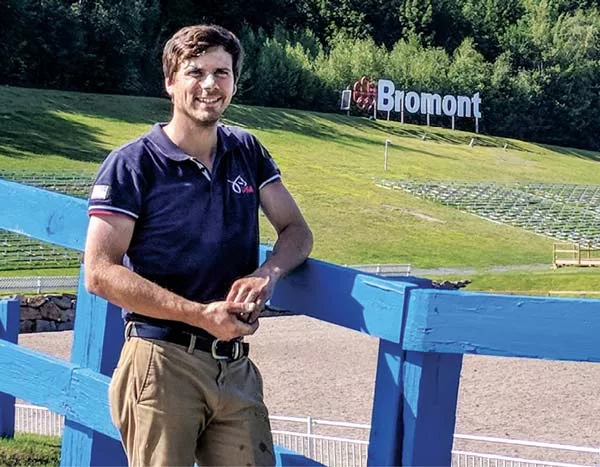Farrier Takeaways
- Avoid stretching yourself too thin and pace yourself. It will negatively affect your family life and wear you down quicker.
- An apprenticeship will be a tremendous benefit not only to improving your skills and knowledge but exposing you to clientele that can result in future business.
- Don’t isolate yourself. Prioritize continuing education by attending conventions, clinics and asking questions of other farriers.
Completing farrier school represents a significant accomplishment. It also represents a significant step as a full-time professional and, most often, small business owner. You will face challenges that will test your resolve. The good news is that there are resources to help — your fellow farriers.
American Farriers Journal established the Rising Shoeing Star award program in 2008. This program recognizes farriers making incredible progress in their first 3 years after farrier school. In partnership with industry suppliers, the program highlights the importance of education and motivates new farriers to succeed.
The 2019 program sponsors include G.E. Forge & Tool, Hawthorne Products, Nature Farms Farrier Supply, Texas Farrier Supply, R.J. Matthews Co., AIM Equine Products, Dechra Veterinary Products and American Farriers Journal.
This year’s winners are Ben Groves of Whaleyville, Md.; Breanne Rodwell of Marwayne, Alberta; and Garrett McDowell of Santa Cruz, Calif.
Groves was awarded the top honor at the 2019 International Hoof-Care Summit. The Cornell University Farrier Program graduate provides insight into the trials he encountered and advice for new farriers.
Q:
What were the major obstacles you faced and how did you overcome them?
A:
After my schooling and apprenticeship, my major obstacles when initially going out on my own were largely myself. In a job that involves spending much of the time by yourself, it’s easy to be tough on yourself.
You will pour time and effort into a lame horse only to see that it’s no better when you’re finished. Meanwhile, you have to explain to the owner what you did and why in hopes that they don’t think you are a complete idiot and fire you. There will be days that try you, like when you receive your fourth text of that day that another one of your horses has lost a shoe. A veterinarian calls you to let you know that they had to pull a nail because you quicked a horse.
How do you get over your self-doubt and criticism? You don’t. There are rewards, though. Watching one of your horses make it through the second jog at the Kentucky 3-Day Event after you’ve put so much time and effort to help get it there will certainly help. Having a vet call to tell you they just vetted one of your horses and you did a great job will boost your confidence. And when one of your backyard clients tells you how happy they are that you do such a nice job on their horse is what it’s all about.
Q:
What were your biggest mistakes, and what did you learn from them?
A:
It was a huge mistake to stretch myself too thin and work too hard. When you love what you do and are overly eager to please the client, it is far too easy to work very long days. I neglected my home life and was generally gone for most of the day for 6 or 7 days a week. It is my second time learning the lesson that life is too short to work yourself to a quicker end.
Q:
What were the smartest moves you made getting started, and why were they so important?
A:
Joining Chester County Farriers Associates was by far the smartest move I made. Learning under several different farriers was key in my development as a farrier. Working with them also exposed me to clientele that would then get to know me and trust my work. Upon my departure, I was sure to be as available as possible and provide the best service as quickly as I could to my clients.
Q:
What resources, other than schooling,
did you find most helpful?
A:
My apprenticeship was by far the most helpful resource, as well as reading available literature and research on the subject. Continuing education is important. Attending conventions and lectures, as well as simply speaking with another farrier are all excellent resources to continue your education.
Nominate a Rising Shoeing Star
To nominate a new farrier who graduated from footcare school in 2017, please send a two-or three-page letter explaining why he or she is a candidate for the 2021 Rising Shoeing Star award.
The deadline for nominations is July 31, 2020. Mail your nomination to American Farriers Journal, P.O. Box 624, Brookfield, WI 53118-0624 or email it to
kkubisiak@lessitermedia.com.







